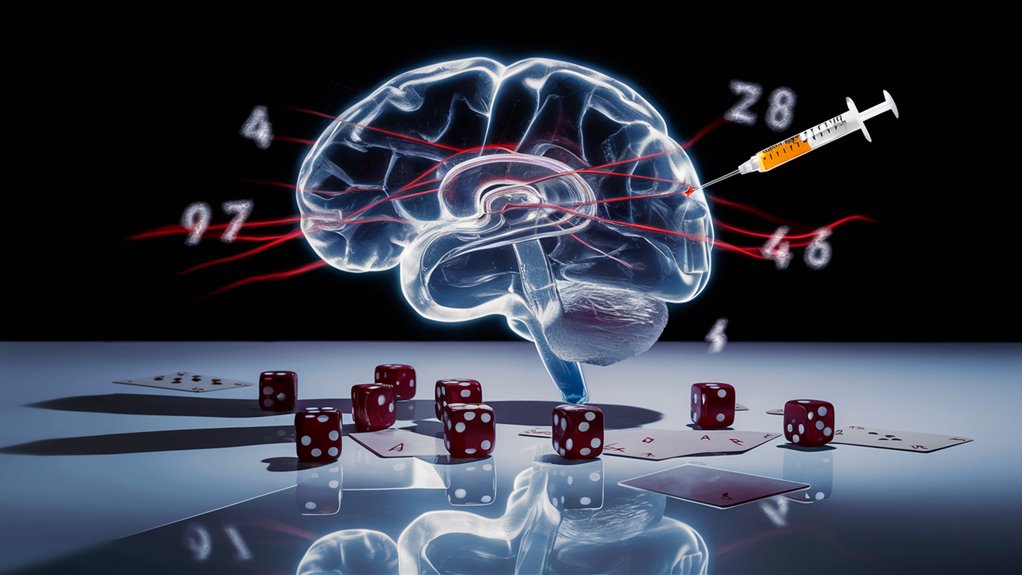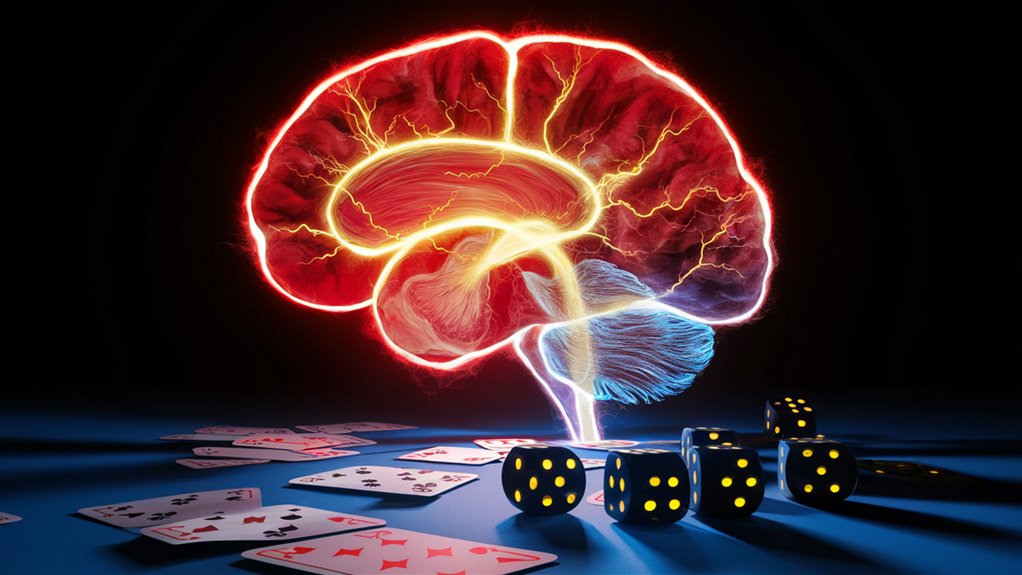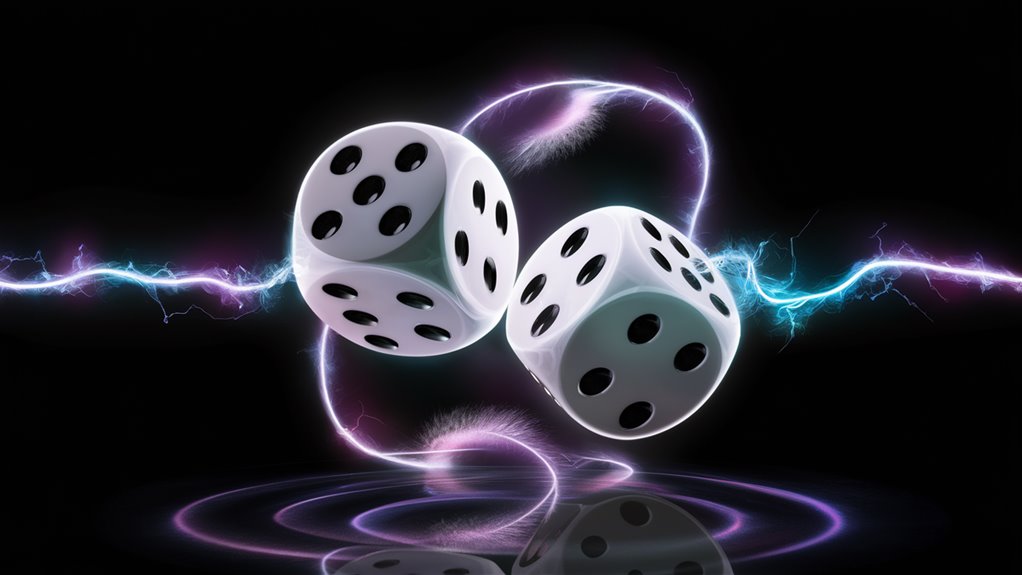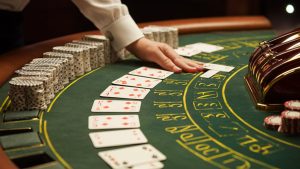
How Betting Alters Your Brain

The link between betting and brain structure is strong, involving brain signals and paths deeply tied to action habits. When you bet, your brain shifts in ways similar to those a drug habit can cause.
Brain Signal Reaction
Dopamine release kicks off as soon as you place a bet, filling the nucleus accumbens, a pleasure chemical area. This triggers joy paths similar to drug effects, creating strong reward trails that boost your desire to bet more. The prefrontal cortex, important for decision-making and urge control, slows down, while the limbic system picks up speed.
Shifts in Brain Paths
Near wins greatly activate the ventral striatum, almost like actual wins, creating a false reward feeling that urges more betting. This makes you believe you’re close to a big win, strengthening the habit cycle.
Long-Term Brain Shifts
Frequent betting leads to tolerance, requiring bigger risks for the same brain reaction. Abnormal feelings toward normal joys lessen in your brain. This brain change fosters a strong need to continue betting, making it challenging to stop without understanding these deep connections.
Understanding how your brain responds to betting shows why breaking free is tough and needs a complete strategy focused on these altered paths. Grasping these brain functions aids in developing effective treatment strategies https://maxpixels.net/
The Big Surge from Betting: A Brain Overview
Brain’s Reward Mechanism
Dopamine, the brain’s pleasure chemical, is crucial in the betting thrill. When you bet, brain reward paths quickly light up, spreading dopamine throughout.
The nucleus accumbens, central in the brain’s reward system, becomes highly active during betting, producing strong mental responses akin to drug reactions.
The Anticipation Game

The dopamine system operates uniquely when betting: it triggers not just when you win but when you are hoping to win. Near wins activate brain reactions almost like real wins, showing why betting is so enticing.
This body setup makes the hope of winning feel as satisfying as the win itself, creating a strong pull.
Risk and Brain Adjustments
With every bet, your brain gets accustomed to dopamine surges. This shift pushes you to take greater betting risks to experience the same high.
The reward system becomes less responsive to normal fun activities, encouraging a cycle of habit formation. This desensitization can lead to increased betting as your brain seeks larger thrills.
Brain Dynamics Behind Near Wins in Betting
Brain Basis of Near Wins
Near wins in betting activate brain paths almost like actual wins, creating a strong mental pull. During these moments, the midbrain releases dopamine even without a win, keeping the betting habit strong through hit-or-miss patterns.
This bodily response helps explain why players persist even when they lose frequently.
Brain Activity During Near Wins
Deep brain scans show significant activity in crucial brain areas during near-wins:
- The ventral striatum and insula are much more active
- The frontal brain part shows more activity
- Dominating Gambling Payments
- Reward centers light up even without actual wins
These actions foster a mind error loop, where the brain perceives near-wins as indicating a big win is near, not recognizing them as losses.
Impact on Problem Betting
Studies indicate that problem gamblers exhibit intense brain reactions to near-wins. Their brain reward areas are more receptive, with near-wins stimulating the same brain paths that real wins do.
This heightened responsiveness creates a loop that can:
- Maintain strong betting habits
- Complicate behavior modification
- Prolong betting despite financial losses
These brain reactions make it extremely difficult to break free from problem betting, as the brain’s reward system becomes more attuned to near-wins.


